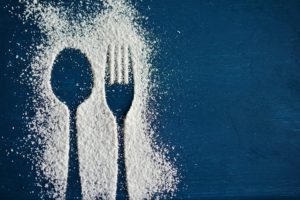ADHD and Sugar Sensitivity? A Look at Speculations

Breaking News!
There's no such thing as ADHD. Millions of parents around the world can breathe a sigh of relief. As it turns out, their children's symptoms are caused by too much sugar! Cut out the sweets, and your children should return to normal. In other news, Bigfoot, the Loch Ness monster, and Yeti are real and coming to a neighborhood near you.
They say that sarcasm is the lowest form of wit, but sometimes there's no other way to respond to absurdity. The latest installment in the “ADHD isn't real” saga features claims that a lack of sugar regulation causes ADHD hyperactivity. Seriously?! Let me be clear: parents, you did not cause your child's ADHD by allowing too many sweets. Claims like this are misleading, sensational, and demoralizing to families struggling to cope with ADHD.
Article continues below...
Treatment for your Child's ADHD
Download a free tip sheet "Recommended Treatment for ADHD: Medication & Behavior Management" for what's really recommended for your child or teen.
The Scoop On Sugar
The idea that sugar causes ADHD or hyperactive symptoms first took hold in the 1970s. Of course, it's never been scientifically validated. Not even close. Studies have failed to provide any evidence that sugar plays a role in ADHD.
Don't get me wrong. There are plenty of reasons to cut sugar from your child's diet, or your own. Sugar – which has no nutritive value – can impact liver function, promote belly fat (which is linked to heart disease), age the brain prematurely, and increase the risk of cancer, diabetes, and heart disease. It's not particularly good for you. But it's not good for anyone. (Though I must say, that it's far superior to artificial sugar substitutes, which I personally consider to be absolute poison – but I digress!)
Frankly, it is ignorant to say that ADHD – which can cause great upheaval and struggle in our lives – is nothing more than the result of consuming sugar. It indicates a profound lack of understanding for what is really going on in complex families.
Advocates of these ideas, as well as the media which propagates them, miss the larger point: there are millions of kids whose brain function makes “normal” self-management and self-regulation a much more difficult obstacle to overcome than it is for other children. Children with ADHD are effectively delayed developmentally. They are unable - not unwilling, and not hyped up on soda or candy – to manage their impulsivity or activity like their same-age peers.
Judging What's Happening In Other People's Brains
It's so easy for others to judge, isn't it? The “ADHD isn't real” mantra brings just reinforces that. Say you're in a restaurant and see a child having a complete meltdown. Crying, screaming, throwing food. It is so easy, and so tempting, to look at the parent or guardian and say, “That's such bad behavior!” or “They must be really bad parents. They need to discipline that kid.”
But if that family is coping with ADHD, then that kid is struggling to learn self-regulation. While it comes naturally to some children, for kids with ADHD it can be a long, uphill battle.
To say that it's not real is to dismiss a family's experience and disregard the very real pain their children endure. It's cruel. It's judgmental. And it shows a complete lack of understanding or empathy.
The challenges you're living with, the struggles you face, the gains you make, and the setbacks that often follow – those are real. Many so-called “experts” and media outlets have diminished ADHD families' struggles by trying to place the blame on sugar – even though there is no scientific evidence to back their claims.
If you're the parent of kids struggling with ADHD, remember that you are not alone in facing these rude and unproven claims. There are millions of parents just like you, and me, and Diane, who are trying to make the best choices we can for our complex kids. We are all too aware that ADHD is very real. And we will not be silent any more.
It's time to call upon the mainstream news media to validate our experiences, rather than to undermine them. As for sugar? Let's leave the stale news, with no basis in reality, to the tabloids, shall we?

